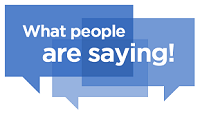"The overall standard in centralization of verified employee credentials for employers to hire top talent for their projects. A secure income earning-based portal (w/project mgmnt & development resources) is provided for businesses, freelance professionals, college students, & teachers/instructors."


Hiring Managers use resumes during the hiring process to learn more about applicants and whether they might be a good fit. Your resume should be easy to read, summarize your accomplishments and skills ... Automate your resume creation with CertificationPoint ![]()
Type: RESUME ASSISTANCE
Posted: December 14, 2020 - 4:39pm
Online Certification Exams'tasCerts' are an EXCELLENT way for you to prove your professional knowledge!
|
Design Skills ChallengeShow Off Your Best Works In A Competition
|
Claim UR College ContestJoin The Greatest Entrepreneurial Competition For Student Collaboration
|
Developer Resource DownloadsWe Have Great Tools To Increase Productivity For Your Projects
|
Career Training & Development ResourcesTop Shelf Career Development Packages To Get You Started & Finish Successfully
TRAINING PKGS |
Digital & Print ProductsPrint Magazine For EduTech Situational Awareness & Digital Blockchain Collectibles
|
MyPoint Collaborative SoftwareUltimate Vantage Point For Career-Minded Individual Growth.
|
BizPoint Collaborative SoftwareUltimate Vantage Point For Business Productivity. (Note: Included In Businesses Subscription)
|
Career Portal DashboardManage & Collaborate With Other Members Online Or Locally
[APPRENTICESHIPS] |
College & Business ExposureManage Profile Data & Collaborate w/Other Members Nationally
|


A: 1. Earn A Degree
2. Develop A Portfolio
3. Gain Work Experience
A: The qualifications to get a web developer job with no experience typically include a degree in the field of web development or computer science. However, many professionals gain their experience through a certificate training program or even teaching themselves the methods.
A: Build a Portfolio Site Full of Relevant Work
Do Freelance Projects
Put Your Code on GitHub
Contribute to an Open Source Project
Participate in a Hackathon
Network with Other Web Developers Online
Follow Industry News
Learn New, Relevant Skills Regularly
A: Coding languages including HTML and CSS. Frontend web programing languages and skills such as JavaScript, Ajax and web animation techniques. Backend web programing languages such as C# or Java, PHP and Ruby. Design software like Photoshop and Illustrator and Sketch.
A: Web development bootcamps typically take 3-4 months to complete and teach all the skills you need to qualify for a web developer job. Learning web development from online courses could take anywhere from a single month to several years, depending on how much time you devote to your courses.
A: Many times it's simply a case of supply and demand. There are so many inexperienced web developers and the supply exceeds the current demand. That's why a big number of web developers looking for remote jobs are left out of work.
A: Goal identification. The initial stage is all about understanding how you can help your client
Scope definition
Sitemap and wireframe creation
Content creation
Visual elements
Testing
Launch
A: planning, analysis, design, development, testing, implementation, and maintenance.
A: Constantly learning and improving
Keeping up to date with the industry
Being able to manage time and prioritize
Understanding UX
Communicating well with others
Capture feedback easily
A: To become a Web Developer, you should have an understanding of HTML, CSS, and JavaScript. It's also recommended to learn about CSS and CSS frameworks. Developing these fundamental web development skills will give you the foundation and logic for communicating with programming languages.
A: There's no magic formula that will make you a successful web developer—as we've seen, anyone can learn to code! However, if you're a keen problem-solver with a knack for building things and getting them working, you'll probably find yourself quite at home in the web development industry.
A: It's exciting to be part of something so dynamic, and it means that it's completely normal to be learning something new if you want to become a web developer at 30, become a web developer at 40 or even become a web developer at 50! We all are still learning!
A: The Bureau of Labor Statistics projects 30.3% employment growth for web developers between 2021 and 2031. In that period, an estimated 28,900 jobs should open up. Web developers create and maintain websites and web applications, and they use web-facing technology to build software.
A: Clients who want a website just like their competitors. Clients wanting a three-month project the 'next day'. Being asked to work for exposure (in other words, for free). Clients ringing your mobile out of hours for no other reason than to discuss their personal, life issues.
A: If you do not need to work a full-time job while studying, you could set a three-month timeline for your career change into web development. You can complete a full-time bootcamp program in as little as three months, with all of the skills and knowledge you need to land your first job as a coder.
A: Understand the key concepts of visual design
Know the basics of HTML
Understand CSS
Learn the foundation of UX design
Familiarize yourself with UI design
Understand the basics of creating layouts
Learn about typography
Put your knowledge into action and build something
A: A good website should be easy to navigate
Have a clear indication of where the user is
URL should be easy to remember
Website should be easy to find/look up/search for
Website should work on multiple browsers
Content should be updated often
Layout consistency is key
A: The fundamental principles of design which are: balance, proximity, alignment, repetition, contrast and space.
A: Overall, making a website with a professional can take anywhere from two to five months. Knowing how long it takes to design a website with a designer/developer, agency or team can help you decide if you'll complete the process on your own or hire a professional.
